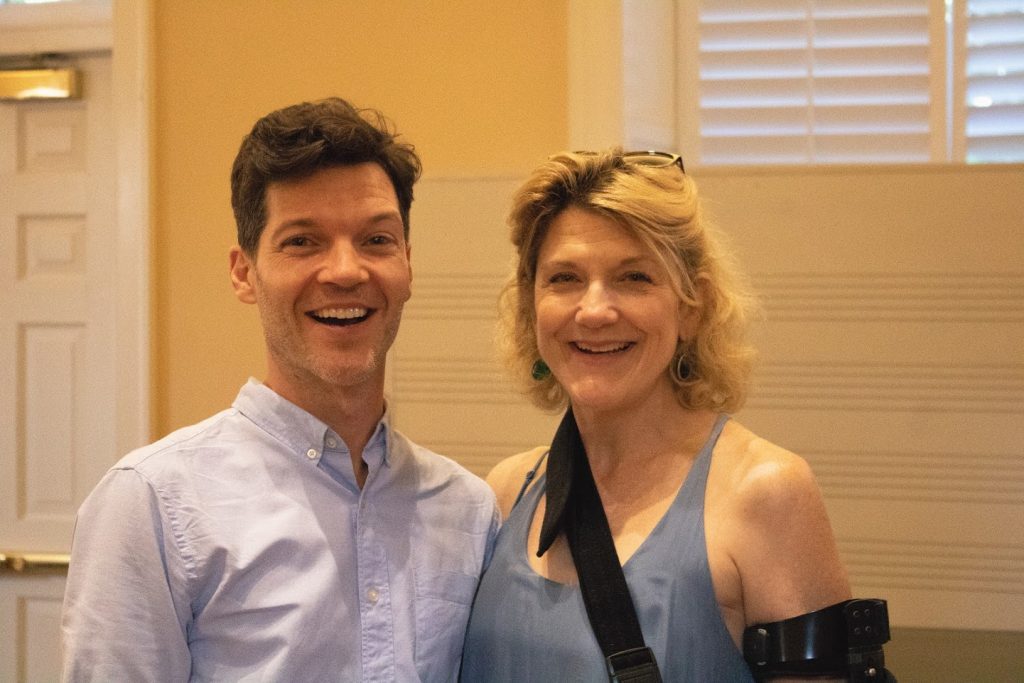This was not your typical vocal masterclass. There were no singers dressed up in suits and dresses. There were no formal introductions of selections. The piano wasn’t in the center of the performance space.
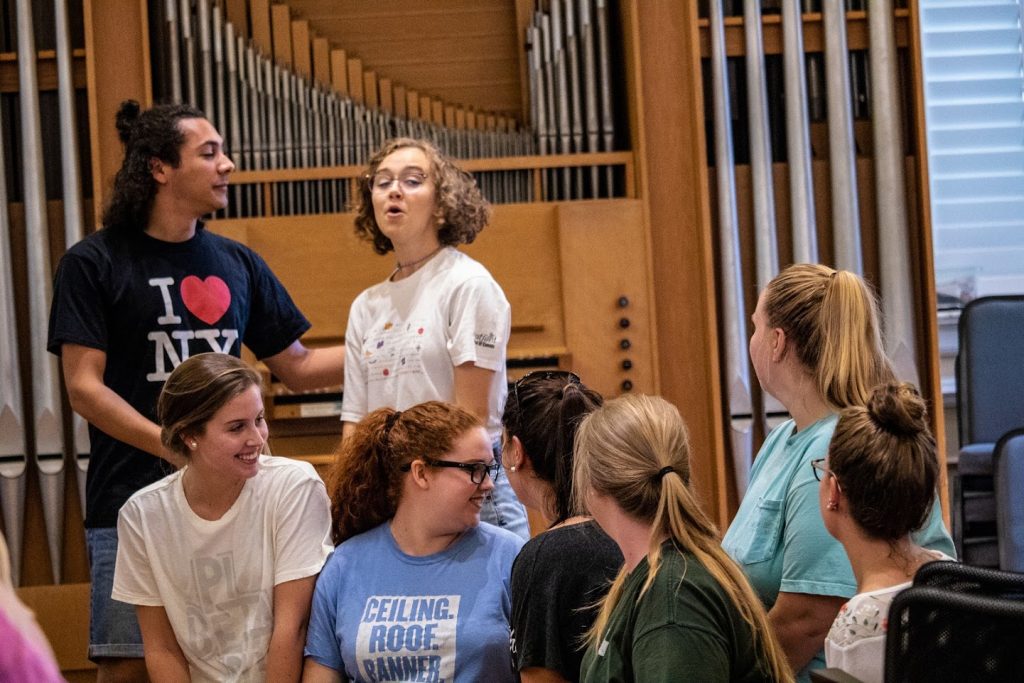
No, this was a Victoria Clark masterclass. She requested that the students performing come in something comfortable that they could easily move in, such as gym clothes. She asked that they not introduce their songs, but go straight into the performance. She freed them to move around the space as they wish,
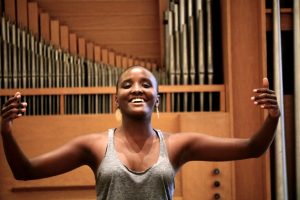
and she did the same. She spoke to the students watching while the singers were still singing. She had students from the audience come up to act as scene partners with each performer, some even dancing together. Ultimately, she gave each of them “permission to play”.
This was a Victoria Clark master class. This was intimate, vulnerable work that gets to the heart of what it means to be a singing actor: “what are you trying to say to the audience”, “how can you say it most effectively”, and here’s the big one, “why“?
Five students performed for Ms. Clark, some working on more than one selection with her. Each of them worked to focus their thoughts into one seamless line, “hitching [their] thoughts to the same cart”, as Victoria called it. She stressed the process of working on new pieces: to start with the text alone, then learn the music alone (working on a neutral vowel to find the weak spots), and then putting it altogether: integrating text and music. If a singer follows this process, streamlines their thinking, and relaxes their body then the
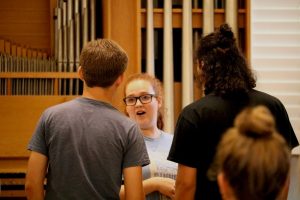
performance will naturally be compelling and draw the audiences’ attention in for a “close-up”. The what.
She emphasized to each performer that being relaxed and vulnerable would yield the best results. Even if the dramatic material is emotional or stressful to the character, as a performer you must keep your distance. As Ms. Clark put it, “As actors we want to do it all and feel it all, but as singers and technicians we can’t.” Maintaining a balanced and relaxed posture along with a relaxed and focused mind allows the singing actor to convey the character’s story in an inviting way to the audience. Instead of showing the audience how hard the actor is working, (s)he pulls them into the story and invites them to invest in the drama they’re watching unfold. One crucial tip that Victoria imparted to the students from sports psychology was “if you worry about something for more than four seconds than you put yourself at risk.” Staying focused and relaxed in the moment is key to every successful performance. The how.
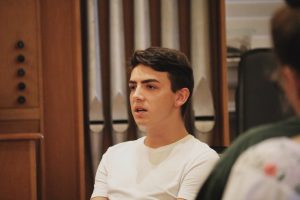
Now the big question: why. In her question and answer session with the students after the main portion of the class, Ms. Clark asked the students what they wanted to do with their singing after graduation. Some are double majors who plan to maintain singing as their “side gig” or hobby. However, a number of
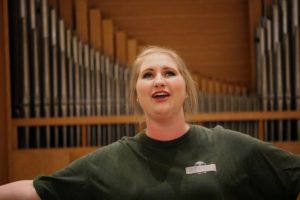
students plan to pursue singing full-time in either opera or musical theater. Senior, Aspen Jackson, asked the ever present question of what advice Ms. Clark can give to ensure success in the business. She replied as so many veterans of the industry do, that “there is not one path to success”. She continued saying, “if you want to do this as a profession, you must figure out your why. Why do you want to do this?” She credited finding her “why” with making the “how” fall in place. The “why” keeps you going, gives you direction and a purpose, and builds up your armor against the criticism that will inevitably come in a performance industry. As a Tony Award-winning actress who has transitioned seamlessly into directing, Victoria Clark has clearly established her “why”.
View the full Clark Master Class program and bio for Ms. Clark.
